第34章 GREATER STATES AND LESSER(5)
On the western side of South America there broke out the struggle known as the "War of the Pacific" between Chile, on the one side, and Peru and Bolivia as allies on the other. In Peru unstable and corrupt governments had contracted foreign loans under conditions that made their repayment almost impossible and had spent the proceeds in so reckless and extravagant a fashion as to bring the country to the verge of bankruptcy. Bolivia, similarly governed, was still the scene of the orgies and carnivals which had for some time characterized its unfortunate history. One of its buffoon "presidents," moreover, had entered into boundary agreements with both Chile and Brazil, under which the nation lost several important areas and some of its territory on the Pacific. The boundaries of Bolivia, indeed, were run almost everywhere on purely arbitrary lines drawn with scant regard for the physical features of the country and with many a frontier question left wholly unsettled. For some years Chilean companies and speculators, aided by foreign capital mainly British in origin, had been working deposits of nitrate of soda in the province of Antofagasta, or "the desert of Atacama," a region along the coast to the northward belonging to Bolivia, and also in the provinces of Tacna, Arica, and Tarapaca, still farther to the northward, belonging to Peru. Because boundary lines were not altogether clear and because the three countries were all eager to exploit these deposits, controversies over this debatable ground were sure to rise. For the privilege of developing portions of this region, individuals and companies had obtained concessions from the various governments concerned; elsewhere, industrial free lances dug away without reference to such formalities.
It is quite likely that Chile, whose motto was "By Right or by Might," was prepared to sustain the claims of its citizens by either alternative. At all events, scenting a prospective conflict, Chile had devoted much attention to the development of its naval and military establishment--a state of affairs which did not escape the observation of its suspicious neighbors.
The policy of Peru was determined partly by personal motives and partly by reasons of state. In 1873 the President, lacking sufficient financial and political support to keep himself in office, resolved upon the risky expedient of arousing popular passion against Chile, in the hope that he might thereby replenish the national treasury. Accordingly he proceeded to pick a quarrel by ordering the deposits in Tarapaca to be expropriated with scant respect for the concessions made to the Chilean miners. Realizing, however, the possible consequences of such an action, he entered into an alliance with Bolivia. This country thereupon proceeded to levy an increased duty on the exportation of nitrates from the Atacama region. Chile, already aware of the hostile combination which had been formed, protested so vigorously that a year later Bolivia agreed to withdraw the new regulations and to submit the dispute to arbitration.
Such were the relations of these three states in 1878, when Bolivia, taking advantage of differences of opinion between Chile and Argentina regarding the Patagonian region, reimposed its export duty, canceled the Chilean concessions, and confiscated the nitrate deposits. Chile then declared war in February, 1879, and within two months occupied the entire coast of Bolivia up to the frontiers of Peru. On his part the President of Bolivia was too much engrossed in the festivities connected with a masquerade to bother about notifying the people that their land had been invaded until several days after the event had occurred!
Misfortunes far worse than anything which had fallen to the lot of its ally now awaited Peru, which first attempted an officious mediation and then declared war on the 4th of April. Since Peru and Bolivia together had a population double that of Chile, and since Peru possessed a much larger army and navy than Chile, the allies counted confidently on victory. But Peru's army of eight thousand--having within four hundred as many officers as men, directed by no fewer than twenty-six generals, and presided over by a civil government altogether inept--was no match for an army less than a third of its size to be sure, but well drilled and commanded, and with a stable, progressive, and efficient government at its back. The Peruvian forces, lacking any substantial support from Bolivia, crumpled under the terrific attacks of their adversaries. Efforts on the part of the United States to mediate in the struggle were blocked by the dogged refusal of Chile to abate its demands for annexation. Early in 1881 its army entered Lima in triumph, and the war was over.